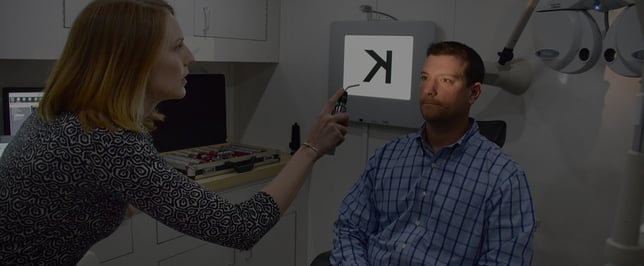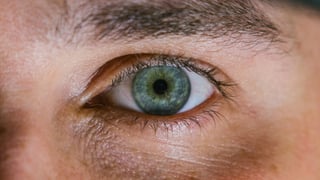There's a common misconception that if you pass a vision screening, your eyes are in great health. That's not always the case. In fact, the Colorado Optometric Association states that 70-80% of visual problems are missed in screenings. So what is the difference, and how can we close this gap? One of our independent optometrists was kind enough to break it all down for us!

Vision Screening
Many people will have a vision screening and think that it equates to an eye exam. Though screenings are beneficial in determining if a child or adult has vision problems, they should never replace a comprehensive eye exam. Below are some of the limitations of screenings and why they matter.
Limitations
- Most vision screenings test only for distance vision. They don't test for farsightedness, or close-up vision, nor for side vision.
- Screenings typically can't gauge how well the eyes focus or work together.
- Vision screenings are usually performed by someone with limited training (not a doctor), who isn't fulled equipped to interpret the results.
- Testing equipment used in screenings tends to be inadequate, as they can be done in any kind of facility. However, even if performed in a pediatrician's office, for example, there could be insufficient lighting, testing distance, and/or maintenance of the equipment.

Bottom line: A vision screening can be compared to a blood pressure test. Yes, your blood pressure may be normal, but it's not an indicator of your complete health. So perhaps your distance vision is fine, but that's not the full story of your eye health. Just like you need a complete physical exam to get a good gauge of your health, you also need a comprehensive eye exam to understand the total picture of your eye health.
Comprehensive Eye Exam
A comprehensive exam will determine the overall health of your eyes and can only be performed by an Optometrist or Ophthalmologist.
What it Entails
- Patient and family medical history.
- Visual acuity (how clearly you can see).
- Preliminary testing for: nearsightedness, farsightedness, astigmatisms, color vision, depth perception, peripheral vision, eye focusing and moving abilities, eye teaming, and your pupil's response to light.
- A complete assessment of the inside and outside of the eye.
- Additional tests as needed, depending on what the doctor finds.
So while vision screenings are still important, they cannot and should not serve as a replacement for regular comprehensive eye exams. If you pass a vision screening, you may still have issues that went undetected. If you don't pass a screening, follow-up care from an eye doctor is necessary.
Show your eyes some love and get them the exam they need, with or without a screening!


